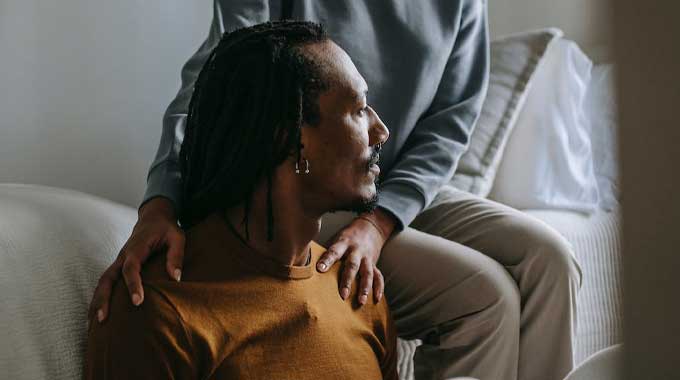For most people, admitting that you have a substance use problem can be very difficult. However, if you can admit it, you’re on the right track. Without taking this courageous first step, you may keep walking down a self-destructive path that can have dire consequences for you and your loved ones.
Bear in mind that a drug problem is not only an issue when the drugs are illicit. Many people in treatment facilities are admitted for prescription medication abuse. This is when you take medication prescribed to you by your doctor, more often than the doctor has instructed you to.
You’re worried that you might have a problem.
If you find yourself wondering if you have a substance use problem, there’s a chance that you do. Whether it’s just a feeling, or a number of instances of substance use that got out of hand, pay attention to it. It’s easier to prevent a disease than it is to cure it, so acting on this feeling could well save you a lot of pain and trouble later on.
Others have expressed concern.
If a friend or family member expresses concern about your substance use, listen to them. It can be easy to brush off what they say, believing that you know yourself best, but the chances are that they have your best interests at heart, and just don’t want to see you mess up your life. Sometimes people can be very sensitive and concerned when it comes to substance use, but instead of dismissing them, take a second to consider the possibility that they might be right. If your loved ones are concerned, is that not cause for you to be concerned yourself?
You’ve tried to quit, but seem unable to do so.
Maybe you’ve attempted to stop using your drug of choice but have experienced a lot of difficulty in doing so. This would indicate that you may have a physical addiction to that substance. You can make plans time after time to quit, but if you’ve been unsuccessful a few times, maybe it’s time to seek outside help.
You experience withdrawal symptoms.
After using substances do you experience withdrawal symptoms? These include headaches, nausea, cramps, insomnia, paranoia, and irritability, to name a few. Experiencing a few of these symptoms in general does not mean you are an addict, but if they happen a few hours after a hit or a drink, it’s likely that the two are related. These withdrawal symptoms can strengthen an addiction, as you may feel you need the substance, creating a stronger dependency.
Your health is suffering.
Substance abuse is a sure-fire way to deteriorate your health. Different drugs have different effects, so take note of how you feel, and get a check up to see what might be wrong. For example, long-term alcohol use is linked to liver problems and some types of cancer. The abuse of substances is done at the detriment of both your physical and mental health.
You’re hiding your use.
You might be doing this because you feel like what you choose to do to yourself is your own business and nobody else’s. Or maybe you don’t want to be judged or nagged. Bear in mind that if you are secretive about your use, that’s generally a red flag that there is in fact a problem. Maybe as a teenager it was normal to hide your alcohol or drug use from a parent or guardian, but if you’re an adult and are still hiding these things from your loved ones, consider that it might be time to step back and assess what’s important.
A common sign that you need treatment for substance abuse is a noticeable decline in your performance at work, school, in your parenting, or any other area of your life in which you have responsibilities. Drugs and alcohol can impact your ability to think clearly. They can also affect your sleeping pattern, making it even harder to perform at your best. If you or your coworkers notice a decline in your performance, consider why that might be.
You take higher doses.
As a result of frequent drug use, the body develops a tolerance to the drug. This is why the first use is usually considered the best. In order to achieve the same high or at least get close to it, a user will need to increase the dose. This puts said user at a greater risk of overdose.
No drug is worth your life. If you are taking higher doses to get high, you are putting yourself in danger and should most certainly seek treatment.
You use substances to cope with stress or to numb yourself.
Professionals and specialists call this self-medicating. If you feel like you need the substance to cope, there is an issue. Substance use as a means to cope is a vicious cycle. One might address their problems with the use of alcohol, for example, and then associate that positive change in mood with the alcohol, strengthening the belief that the alcohol is needed.
With every new issue or challenge that presents itself comes some level of stress, which can make a user feel like they need the substance again. Be mindful of your language. We often speak or think our realities into existence, so the language you use around your use should be observed. The word ‘need’ is dangerous. Something stressful happens, and your first thought may be ‘I need a drink!’ This is a red flag!
You want to stop, but you don’t know how.
There may come a time when you feel like you’ve had enough of the problems you’re experiencing as a result of your substance use, so you decide to quit, but just can’t figure out how to do it. The thing is, once an addiction has developed, it’s very difficult to kick it on your own. However, do not let yourself believe that you’re a failure if you realize you need to seek professional treatment. That’s what it’s there for!
If you feel like any of these 10 indicators are true for you, be proactive and contact Cornerstone. Our expert professionals are available 24/7 to help and together you can decide what the best next steps for you are. Call (714) 547-5375






